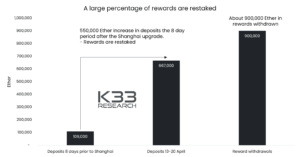- Aiken is a new programming language that simplifies smart contract development on the Cardano blockchain, with features that meet developer expectations.
- Aiken is an open source project that aims to foster growth in the Cardano ecosystem by providing a more seamless developer experience.
Aiken: The Future of Smart Contracts
Aiken is a novel programming language designed to simplify and enhance the development of smart contracts on the Cardano blockchain. The language comes with a syntax that is easy to learn and integrates well with other tools and languages.
Moreover, Aiken includes various state-of-the-art features that meet the current expectations of developers. Aiken is an open source project that arose from the dedicated efforts of various individuals.
After the original kickoff with the support of TxPipe, new developers showed an interest in the project, deciding to add their time and attention to assist it. The Cardano Foundation also sees the potential of Aiken to foster growth in the Cardano ecosystem by providing smart contract development with an optimized developer experience.
#Aiken – The Future of Smart Contracts
The articles covers:Current challenges to develop #smartcontracts on #Cardano
Aiken’s solution & how it operates
Aiken’s history, present, and future
https://t.co/e1NZjJg7k3@aiken_eng @rvcas @_KtorZ_ @MicroProofs#OpenSource pic.twitter.com/nmtOGVEm2P
— Cardano Foundation (@Cardano_CF) April 20, 2023
Perceiving the Gaps
The Haskell Plutus platform, until now the only fully developed smart contract language on Cardano, often becomes difficult or frustrating to use. In fact, setting up a working Haskell environment can prove challenging, especially when it involves ad-hoc compiler plugins such as PlutusTx.
Moreover, since the Plutus platform is tied to Haskell’s existing language but then adds different built-in libraries, ecosystems, and program semantics that differ from standard Haskell, it often leads to confusing situations. Finally, the Plutus platform discourages the use of other languages for off-chain code, thus preventing teams from working with their usual tools and languages for what represents a large portion of their decentralized application.
Introducing Aiken and how it operates
Aiken introduces a new, easy-to-learn programming language designed to bring the Cardano smart contract development experience up to the level that developers expect in 2023. It includes a variety of domain-specific conveniences to make the development process easier and more efficient. Aiken features a familiar C-family syntax while still being a purely functional language.
Aiken offers an approachable way to decompile on-chain code into a higher level representation. Aiken’s compiler takes code written in Aiken, performs various checks, and outputs Untyped Plutus Core programs that can be used on the Cardano blockchain.
Writing our own compiler means we can look for cases specific to writing smart contracts and provide better feedback from the compiler, as well as extra guidance when it comes to writing contracts. Besides the programming language, Aiken also provides a toolkit for working with Cardano smart contracts and, in particular, with low-level Untyped Plutus Core.
Aiken’s history, present, and future
The project started as a conversation between engineers from different horizons, being brought to life with the initial support of TxPipe from shared goals and a common philosophy. In less than a year, surpassing all expectations, Aiken is now ready for an alpha release. Aiken is a prime example of open source, with contributors from the Cardano community collaborating on many fronts and sharing their feedback.
Aiken is currently in the alpha phase, and while it already comes with essential functionalities to productively write, test, document, and benchmark on-chain contracts for Cardano, it is important to exercise caution when using Aiken in production. The Aiken team will conduct thorough audits of Aiken this year to ensure it meets the robustness standards expected of an enterprise-grade toolkit.


Aiken’s Benefits and Challenges
Aiken aims to reduce the time it takes for developers to get started and finish their projects. The language is geared towards readability, making it easy to audit and reducing the chance of errors. Aiken also provides a package manager that encourages the development of open source libraries with clean and easy-to-host generated documentation. Additionally, Aiken offers a testing plus benchmarking framework, helpful and quick compiler feedback, automatic code formatting, a language server with editor integrations, and an interoperable and portable binary specification format (CIP-0057).
Despite its many benefits, Aiken still faces some challenges. One of the main issues is that it is a new programming language, and as with any new language, there is a learning curve for developers. Additionally, while Aiken offers a more seamless development experience, it may not be as powerful as the existing Haskell Plutus platform in terms of the features and functionalities it offers.
Another challenge that Aiken faces is that it is still in its alpha phase, which means that there may be some rough edges and bugs that need to be ironed out. As such, caution is recommended when using Aiken in production.
However, the Aiken team is working to address these challenges and is conducting thorough audits to ensure that Aiken meets enterprise-grade robustness standards. As more developers join the Aiken community and provide feedback, the language will continue to evolve and improve, ultimately helping to foster innovation and empower developers in the Cardano ecosystem.
The post Cardano Takes Smart Contracts to the Next Level with Aiken: The Future of Blockchain Development appeared first on ETHNews: Bringing you the news of everything blockchain, Ethereum, and the internet..



